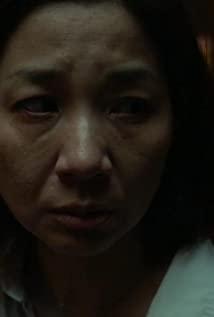The director selected several representatives of the middle and lower classes in an attempt to map out a more comprehensive social status quo. Just think about the character's creative intentions:
The male protagonist is a university teacher and is in the upper middle class in society. He seems to be a person with principles and hates society breaking the rules, but in fact he is also an approval and follower of social rules, eager to be recognized by the rule-makers. At the beginning, he still insisted on the principle, and soon he still chose to compromise under the pressure of reality. The kidnapping of the dog is a psychological reflection of his hatred of rule breakers at first, and then he is forced to accept the metaphor of the dog raised by his wife is the process of his subtle recognition of the unjust rules of the society.
The heroine is in the lower class of the society doing odd jobs. She is eager to be recognized by the mainstream society, and her yearning for personal heroism is a reflection of her desire to be recognized. It is undeniable that the heroine is a kind and loving person with a good personality, but her motive for rescuing the dog from the homeless man in the climax is not only because of her personality, but also because she is looking forward to such a chance to be admired. , and even change the status quo of her own life, but unfortunately, she failed. Even if she thinks she has made a "heroic" creation, she is still a marginalized person ignored by mainstream society.
And the sick grandmother who lived in the semi-basement and the dog was thrown away by the hero and fell to her death represented the people of the lower social class. . The phrase "all those who keep dogs are millionaires" said by the male protagonist in an angry mood is an excellent satire of social reality.
In addition, the director also revealed the social dilemma faced by middle-class white-collar women through the role of the male protagonist's wife. In the first half of the film, we see a marriage where the male is weak and the female is strong. The male protagonist is almost obedient to his wife, but in fact, in marriage, it is the female who makes sacrifices for the male. When the couple finally vented, the wife shouted, "Have I ever bought anything for myself? I've been frugal so that you can be rated a professor."
"Do you know how difficult it is for pregnant people to keep their jobs? I have been paid 11,000 yuan for 13 consecutive years." From this line, you may have a glimpse of the reproductive difficulties faced by women in the workplace. In a male-dominated society, women are the weaker party due to their own biological factors, and are forced to compromise with the rule-makers, namely men, in order to survive.
But despite the film's smoother narrative and some clever camera design, the motives of its characters remain unclear. From the very beginning, the male protagonist's attempt to kidnap and kill the dog made people feel a little abrupt. Although he understood that the character's motive design was a metaphor, it did not seem logical that he was motivated to kill simply because he hated the bark. And the plot of losing the dog later, picking up the lottery ticket on the ground, also has the same problem. Another problem with the script is that the design is a bit heavy, and some suspense and chase scenes have tension, but they are also old-fashioned.
However, in the end, when the heroine rescued the dog, there were many behind her, and the two shots of her and the male protagonist running across the street when they met a group of running schoolgirls are very interesting. They subtly hinted at the "image of all beings" that the audience wanted to convey in the film. a theme.
The flaws do not hide the beauty, as the debut work, it is already very strong. Four stars!
View more about Barking Dogs Never Bite reviews











